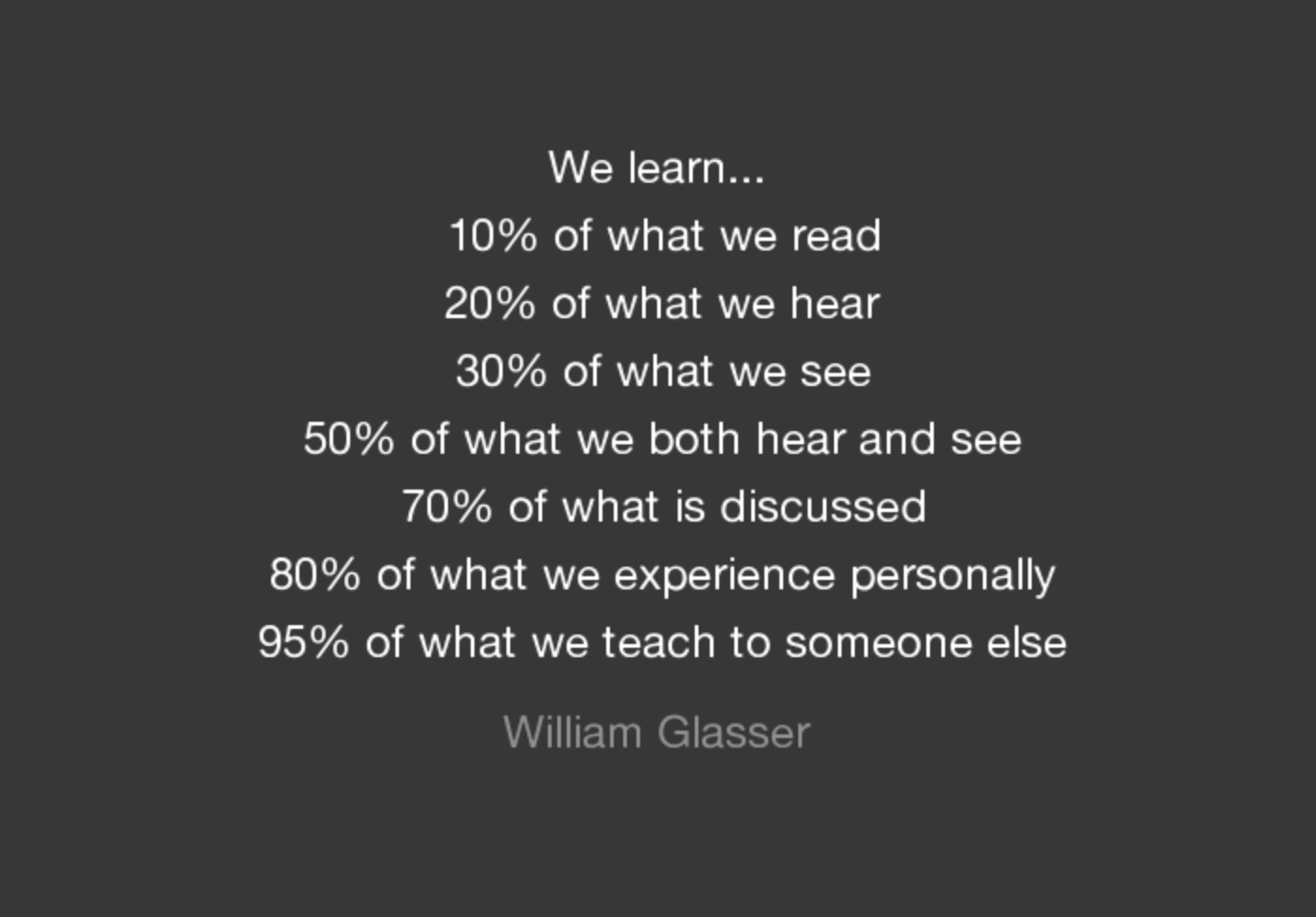Why Do Start-Up Founders Need a Mentor?
Mentorship is the best-kept open secret in the business, and in this series of articles, I explained why. It’s a great way to speed up your career progression without cutting corners or having to make your own costly mistakes.

“Hey, Ran,” I said. “I’ve decided to quit my job, take all of my savings and build a company with my co-founder. We’re working on a solution to a major problem. We could change the world with this thing. But there’s a problem.”
Ran looked at me and waited for me to continue. I took a deep breath and prepared to ask the question that would change my life forever:
“Where do we start?”

Ran Grushkowsky was (and is) my mentor and friend, a talented guy with a huge amount of knowledge and experience. Ran started out as an entrepreneur when we were still in high school (he founded and sold the largest electronic music website in the world), and he was kind enough to give me guidance during my first steps into a career of entrepreneurship.
There’s a whole story there, but the TL;DR version is that I ended up giving him equity in my company in return. He didn’t ask me to, but it was the right thing to do. Here’s why:
Ran explained the ins and outs of entrepreneurship and helped me to identify my blind spots around building a business ahead of time. He also helped me to map out potential future challenges like transferring responsibilities to others, building and modeling a culture of accountability and adapting to a changing market that I didn’t even know existed.
He took the unknowns that could have sunk me and helped me to come up with a battle plan. Whenever I had to make an important decision, Ran acted as a sanity check.
He did that by being an especially attentive listener who helped me to analyze my goals and business needs. I could then use the insights and information he shared with me to figure out my next move. He helped me to level up my learning when growing my business, providing me with a gift that I can never repay.

Setting the Scene
After a year in business, we got to the point where we’d cashed our savings, had no salary and were bleeding money because we were still building up the business. Suddenly and out of the blue, a VC reached out looking to invest in us.
That was the first experience I'd ever had with a VC, and I didn’t know all the tricks and best practices.
We got an offer for $200K for 25% of the company (giving it a valuation of $800,000). We thought we had to take it. We jumped on a call with them, clueless of how to proceed and how to sell to them. Fortunately, Ran saw our naivety and jumped on the call to start negotiating on our behalf.
Later, he told me, “Itay, investors invest for two main reasons: fear or greed:
- Fear of missing out on the next big thing
- Greed when they know the team is strong and the business has potential but the founders are struggling financially
He told me that there was a good chance that we were going to succeed but that they were holding us by the balls. He said, “Never accept greed. You'll lose control of the company and your vision.”
We ended up not taking the deal. A month later, we were accepted into Y Combinator. Fast forward three months and the same investor offered the same $200K at a valuation of $12 million. That’s the value of a mentor: 1.5% vs. 25%! When I gave Ran equity in the company, I could have given him 20% (worth $2.4 million) and we would have still come out on top.
That was seven years ago, and a lot has changed since then. My partners and I have grown our business and our customer base, hired employees (from 3 founders to 300+ employees), raised money ($20M+), and gone through Y Combinator (the W15 batch). We’ve had our fair share of ups and downs and gone on an adventure that culminated with us merging our company with one of the biggest companies in the industry in January 2020.
And that’s why I wanted to write this article: to say thank you, Ran. You really made a difference to my life and my work, and I’ll forever be grateful. Without you, I wouldn’t be me.
Ran and I still talk once a month, and every conversation brings out new insights and helps me to keep learning. We all experience times when we’re stressed or vulnerable and when we need to learn something new in a hurry. It’s times like those that taught me the true value of having a mentor.
“A great mentor will help bring people and resources together to help you overcome fears. Lemme know if you find one.”
– Richie Norton, author of The Power of Starting Something Stupid
So What’s the Problem?
The problem is that most entrepreneurs are looking for silver bullets and treating building a business like a sprint instead of a marathon. In reality, there aren’t any silver bullets, and believing in this fantasy can be deadly for your business.
Even if you’re lucky enough to have the support of your friends and family, the truth is that they’re unlikely to possess the skills and knowledge that you need. It takes a certain type of person to run a business, and relying on friends and family for advice is like asking someone you met at a bar to file your taxes.
Call me crazy, but I’d rather hire an accountant.
The good news is that information is more accessible than ever before. You can acquire new skills and extend your knowledge by reading articles or watching videos. You can read books or take online courses.
But that’s not all there is to it. I’ve watched dozens of space documentaries and read Stephen Hawking’s A Brief History of Time, but that doesn’t make me a physicist.
On top of that, it’s difficult to find balance between learning and doing. There’s so much information out there that you could spend a whole day just looking for a reliable source, and then you still need to learn from them and apply what you’ve learned to the task in hand. The truth is that entrepreneurship is a full-contact sport based around execution power. The challenge is transitioning from theory to implementation.
Even if you’re able to find a trustworthy source, there’s another problem. The vast majority of content is one-to-many, meaning that one piece of content is facing an audience of hundreds or thousands of people.
By its very nature, this kind of content has to be more generic. Even when it tackles a subject from a certain perspective, it’s not talking about your own specific problem. It’s not tailored to your parameters, personality, and resources.
I get it: this kind of content is easy, accessible, and cheap. But for me, the downsides outweigh the advantages. It takes time to consume it, it often sidesteps the challenges that you’re actually facing, and you don’t always go away with what you need.

How to Find Your Ran Grushkowsky
By now, you should already be sold on the benefits of having a mentor, but you probably also have a couple of questions:
- Can anyone have a mentor?
- Where can I find one?
The answer to the first question is a resounding yes, so let’s move on to the second.
Finding the right mentor can be as easy as going to networking events and chatting to other people about their experience in specific fields or topics. Back in the day, this was pretty much the only option that we had.
But now that our lives are increasingly digital, it’s never been easier to find the perfect mentor. We can quickly and easily search for potential mentors on sites like Twitter or LinkedIn. We can also ask colleagues, friends, and family members for recommendations.
Over the last several years or so, there’s been a change in the way that we look for quality, affordable and experienced mentors. New platforms have come to market, allowing us to reach out to people in different ways.
These sites are specifically designed to connect professionals and entrepreneurs with talented mentors and advisors. I wish I’d had something like that when I started out. I struggled to figure out the best move throughout most of the stages of my startup and my career. Now, the possibilities are endless.
After my positive experience with Ran and seeing the rapid rise in the number of entrepreneurs, I decided to give it a go myself and to start mentoring others. I don’t pretend to know everything, but I do know that I can help people in the same way that Ran helped me.
So far, the experience has been amazing, and I’ve seen a huge amount of positive feedback from the people I’ve mentored. I’ve also seen what a difference it makes when I give them answers to their specific questions and concerns.
After trying several different mentoring platforms, both as a mentee and a mentor, I settled on two that have worked well for me: Growthmentor and Mentorcruise. Each targets a different market segment, but both have plenty of talented, experienced, and knowledgeable mentors that have been through a long vetting process before joining.
“Education is the kindling of a flame, not the filling of a vessel.”
– Socrates
Fun fact: Socrates’ mentor was Plato, and Socrates mentored Aristotle who then mentored Alexander the Great.
To be continue...
Part Two
In my next mentorship post, I’ll share some more about my experiences with mentorship, as well as explaining why mentors are like magic mushrooms, and sharing six main ways that having a mentor can help. Click here to check that out!
